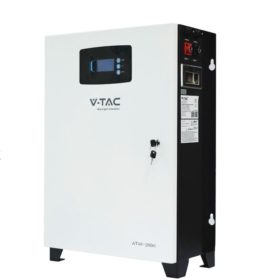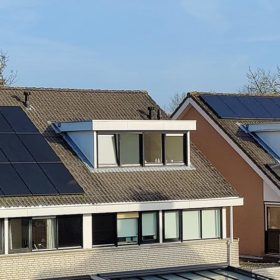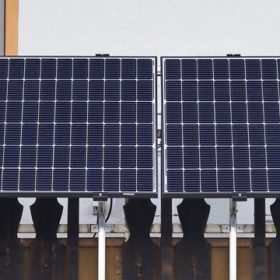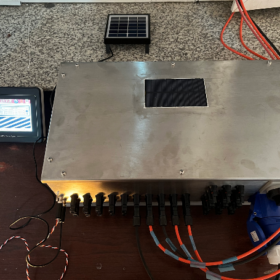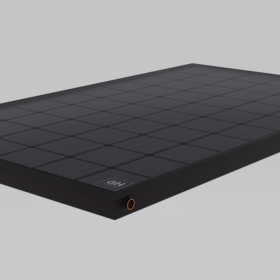New lithium iron phosphate batteries for rooftop solar
V-Tac’s new 10 kWh lithium iron phosphate, wall-mounting battery system purportedly runs for more than 5,000 cycles.
Only5mins! – PV system prices could drop by around 10% in Europe in 2023
Andreas Thorsheim, the CEO of Norway-based residential solar specialist Otovo, speaks to pv magazine about solar array prices, current market trends for distributed storage, and shortages of qualified professionals.
Katek unveils silicon carbide inverter for residential applications
Katek, a German PV inverter manufacturer, says its 4.6 kW coolcept fleX inverter features silicon carbide (SiC) semiconductors from US-based Navitas Semiconductor. It is smaller and weighs less than non-SiC models.
Netherlands posts another record year for residential PV in 2022
The Netherlands may have deployed 2 GW of new residential solar capacity in 2022, according to provisional figures from grid operators.
Only5mins! – Europe may deploy 53 GW of solar this year
pv magazine speaks to Raffaele Rossi, head of market intelligence for SolarPower Europe, about the solar outlook in 2023. He says the European solar market may grow by around 29% compared to 2022.
Swedish authorities issue warning about solar panels on balconies
The Swedish authorities have identified electrocution and fire risks posed by the improper deployment of plug-in solar modules.
Novel snow-removal tech uses electricity from uncovered PV panels
JA Solar has worked with Chinese scientists to test a new electrical heating system for solar panels that uses the heat from uncovered panels to remove snow. The system starts by using grid electricity, but then relies on the thermal effect of resistance to uniformly heat the whole PN junction area of the snow-covered panels.
New photovoltaic-thermal solar panel from Spain
Spanish PVT specialist Abora Solar has developed aH72SK modules, which combine solar panels with power conversion efficiencies of 17.8% and a thermal efficiency rating of around 70%. Its total area is 1.96 square meters.
Yaskawa releases 25 kW inverters for rooftop PV
Yaskawa’s new Enewell-SOL P3A 25kW inverters are suitable for applications in medium- or large-size rooftop solar projects and carports.
Netherlands reports 40 PV installation accidents over past 18 months
The Netherlands Labour Authority (Nederlandse Arbeidsinspectie) has provided accident statistics related to the installation of solar energy systems. It says there have been four casualties among solar installers over the past three years.
